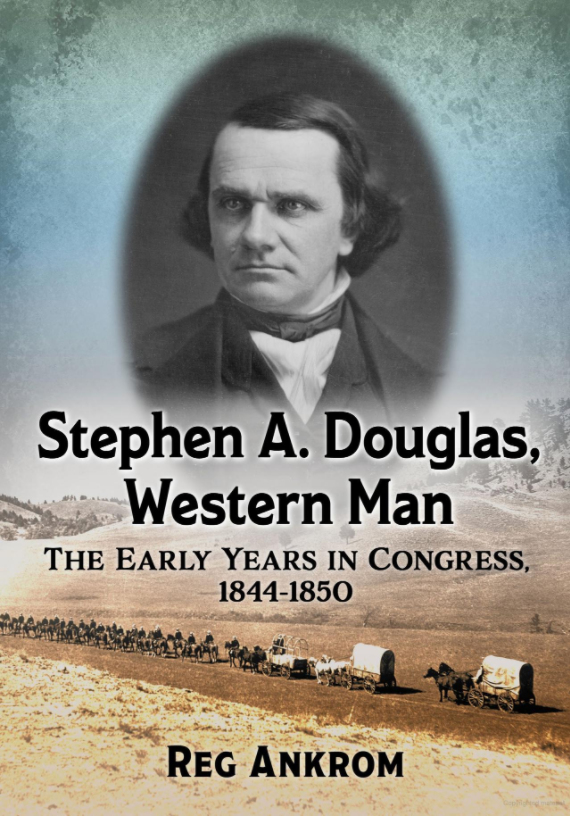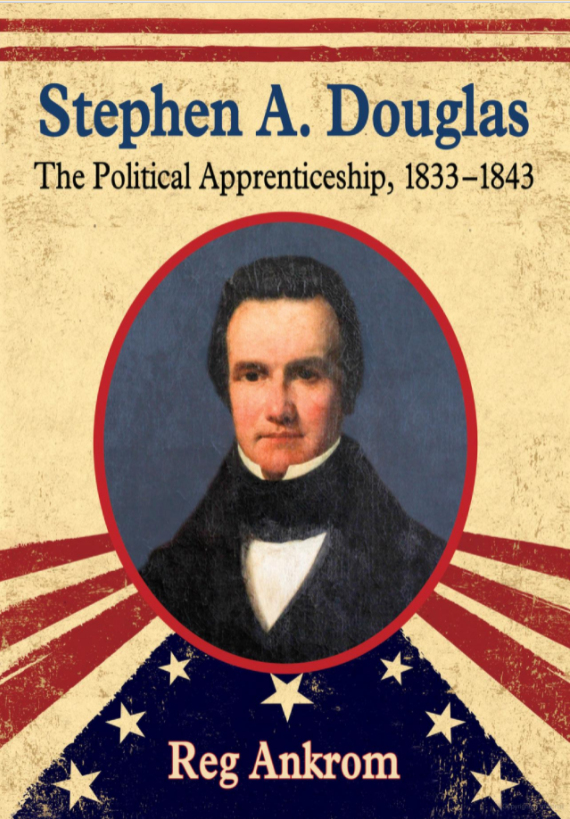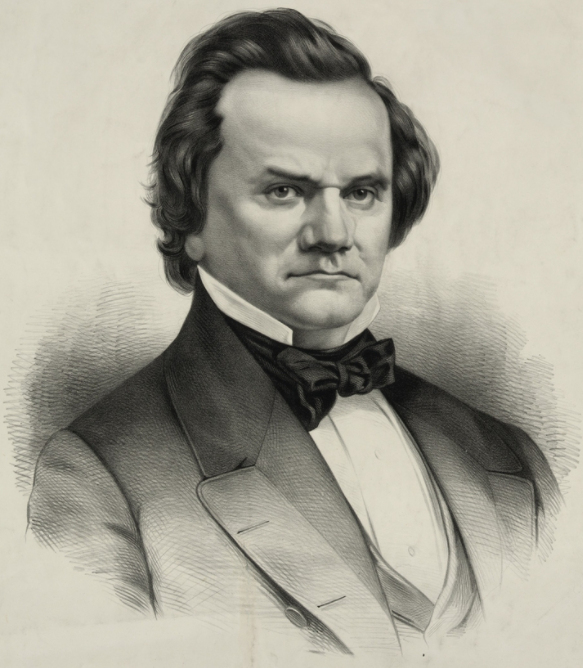
reshman Congressman Stephen A. Douglas quickly saw the truth of Senator Thomas Hart Benton’s warning: slavery attached itself to every measure that
F
came before the U.S. Congress. Douglas sought to make the nation an ocean-bound republic. He would find slavery and the violent conflicts it stirred always in the way. (The word “slavery” appears 808 times in this volume.)
Western Man fully details Douglas’s string of legislative victories in the first six years of his congressional career. The book begins with the first success the youngest U.S. Representative in the 28th Congress achieved. An alarmed House Speaker appointed Douglas, the former associate justice of the Illinois Supreme Court, to resolve a constitutional crisis that threatened the House of Representatives itself. Douglas provided the solution to what was fast becoming a constitutional crisis. The book recounts the Douglas successes, including his debates with the great men of his time, to his greatest legislative achievement, the passage of what became known as the Compromise of 1850.
This second volume in Reg Ankrom’s biography of the Little Giant chronicles Douglas’s successes and how Douglas sought to move the ever-present danger of slavery away from the halls of Congress.

Buy the Books
Signed and inscribed
by the author.
Order here.
I ever saw.” When in 1834 he saw Douglas manage to persuade the Illinois General Assembly to pass his first bill, Lincoln was not so disparaging. The legislature not only passed the bill, it appointed the 22-year-old Douglas state’s attorney for the largest judicial district in the state. In winning the position, Douglas ejected from office Whig John J. Hardin, the shirttail nephew of Henry Clay and one of Lincoln’s most powerful political allies.
There were many Douglas-Lincoln contests in the decade ahead. They clashed over banking, government-sponsored internal improvements, party organizations, the locale for the seat of their state’s government, and slavery. Even a romantic rivalry put them on opposing sides long before their 1858 debates and their 1860 presidential contest. These contests during Douglas’s first decade in Illinois were his political apprenticeship, and he would use what he learned to hold back the ambitions of Abraham Lincoln--his friend and political foe--while becoming the mid-19th century’s most powerful Democrat in America.
hen newly elected Illinois State Representative Abraham Lincoln first saw the 5’4” Stephen A. Douglas, he sized him up as “the least man
W
Volume 2
Volume 1
About Volume 3
Buy the Books
Signed and inscribed
by the author.
Order here.
H
aving won election to Congress on a promise to expand the nation, Douglas on December 17, 1844, introduced his first bill to so. House Resolution 444
was entitled “A Bill to Establish the Territory of Nebraska.”
His first bill to organize Nebraska failed, but that did not deter him. His decade-long effort to organize the huge part of the Louisiana Purchase demonstrated Douglas’s persistence. The failures provided important lessons to Douglas and informed his strategy for admitting Nebraska. He had learned what did not work. And in 1854, he tailored his bill to one that would.
Abraham Lincoln believed the Kansas-Nebraska Act was the proximate cause of the U.S. Civil War. Ankrom closely examines that claim and in this volume will provide a carefully researched and reasoned response.
Publication of this third and final-volume of Ankrom’s biography of Stephen A. Douglas Publication is planned for 2024.

Stephen A. Douglas and Union, 1851-1861